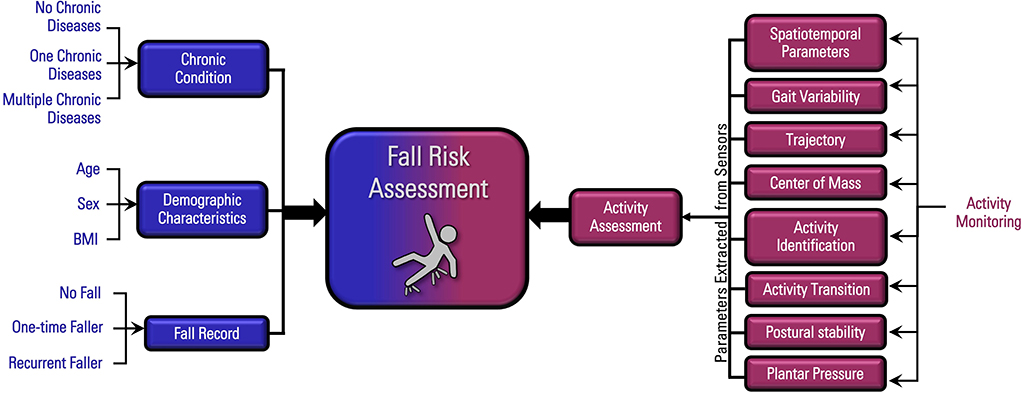Not known Incorrect Statements About Dementia Fall Risk
The smart Trick of Dementia Fall Risk That Nobody is Discussing
Table of ContentsThings about Dementia Fall RiskThe Facts About Dementia Fall Risk RevealedEverything about Dementia Fall RiskUnknown Facts About Dementia Fall RiskDementia Fall Risk Things To Know Before You Get This
Ensure that there is a designated location in your clinical charting system where team can document/reference scores and record pertinent notes connected to drop prevention. The Johns Hopkins Loss Risk Assessment Device is one of lots of devices your team can utilize to help protect against adverse medical occasions.Person falls in medical facilities prevail and incapacitating adverse occasions that continue regardless of decades of effort to minimize them. Improving communication throughout the evaluating nurse, care team, patient, and patient's most involved loved ones might reinforce loss avoidance efforts. A team at Brigham and Women's Medical facility in Boston, Massachusetts, sought to develop a standard autumn avoidance program that centered around enhanced communication and patient and family members involvement.

The development team highlighted that effective execution depends on patient and team buy-in, combination of the program into existing workflows, and integrity to program procedures. The group noted that they are facing just how to ensure continuity in program execution during durations of crisis. During the COVID-19 pandemic, as an example, an increase in inpatient drops was linked with limitations in person engagement along with limitations on visitation.
The 10-Minute Rule for Dementia Fall Risk
These occurrences are generally thought about preventable. To implement the intervention, companies require the following: Access to Autumn suggestions sources Fall ideas training and retraining for nursing and non-nursing personnel, including new nurses Nursing workflows that allow for individual and household interaction to perform the drops evaluation, make sure use the avoidance strategy, and carry out patient-level audits.
The outcomes can be very destructive, typically speeding up individual decrease and triggering longer health center stays. One research estimated remains boosted an extra 12 in-patient days after an individual autumn. The Fall TIPS Program is based upon engaging patients and their family/loved ones across 3 main processes: evaluation, personalized preventative interventions, and bookkeeping to make sure that clients are engaged in the three-step loss prevention procedure.
The client assessment is based on the Morse Autumn Scale, which is a validated autumn danger assessment tool for in-patient healthcare facility settings. The scale consists of the 6 most typical Click Here reasons people in healthcare facilities drop: the person autumn history, risky conditions (including polypharmacy), use IVs and other outside gadgets, mental status, gait, and movement.
Each danger factor relate to one or even more actionable evidence-based treatments. The nurse creates a strategy that integrates the treatments and shows up to the treatment team, person, and family on a laminated poster or printed aesthetic aid. Nurses develop the strategy while meeting with the person and the client's family.
The 7-Second Trick For Dementia Fall Risk
The poster functions as an interaction tool with various other participants of the client's care team. Dementia Fall Risk. The audit component of the program includes assessing the patient's expertise of their threat variables and avoidance plan at the unit and medical facility levels. Registered nurse champs carry out a minimum of five individual meetings a month with patients and their households to inspect for understanding of the autumn avoidance strategy

An estimated 30% of these drops result in injuries, which can range in severity. Unlike various other adverse occasions that need a standardized medical reaction, autumn prevention depends highly on the demands of the client.
The smart Trick of Dementia Fall Risk That Nobody is Talking About

Based on auditing outcomes, one site had 86% conformity and two sites had more than 95% conformity. A Discover More cost-benefit evaluation of the Loss TIPS program in eight hospitals approximated that the program price $0.88 per patient to execute and resulted in financial savings of $8,500 per 1000 patient-days in direct expenses associated with the prevention of 567 falls over 3 years and eight months.
According to the innovation group, organizations interested in applying the program ought to carry out a preparedness analysis and drops prevention gaps analysis. 8 Furthermore, companies need to ensure the necessary infrastructure and process for application and establish an execution plan. If one exists, the organization's Loss Avoidance Task Force need to be involved in preparation.
Fascination About Dementia Fall Risk
To start, organizations should ensure conclusion of training components by nurses and nursing aides - Dementia Fall Risk. Medical facility personnel must examine, based on the demands of a hospital, whether to use a digital wellness record printout or paper variation of the loss advice avoidance plan. Implementing groups ought to hire and educate nurse champions and establish processes for bookkeeping and reporting on loss data
Team require to be entailed in the procedure of upgrading the operations to engage patients and family members in the analysis and prevention strategy process. Systems ought to be in area to ensure that systems can recognize why a fall occurred and remediate the reason. Much more specifically, registered nurses ought to have channels to provide recurring comments to both personnel and system management so they can readjust and boost autumn prevention workflows and communicate systemic issues.